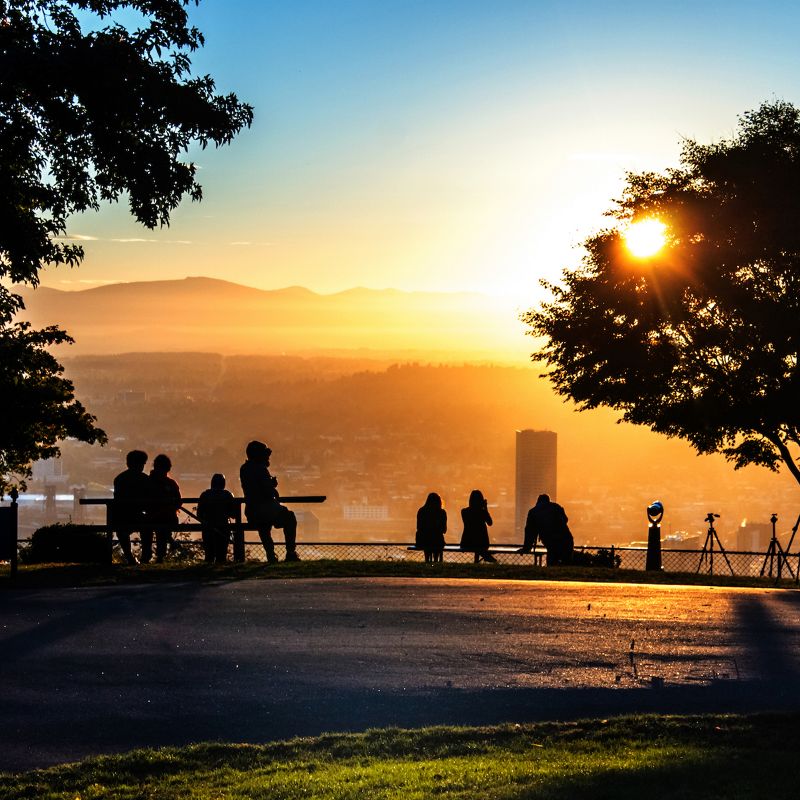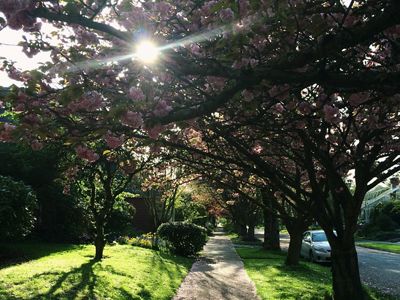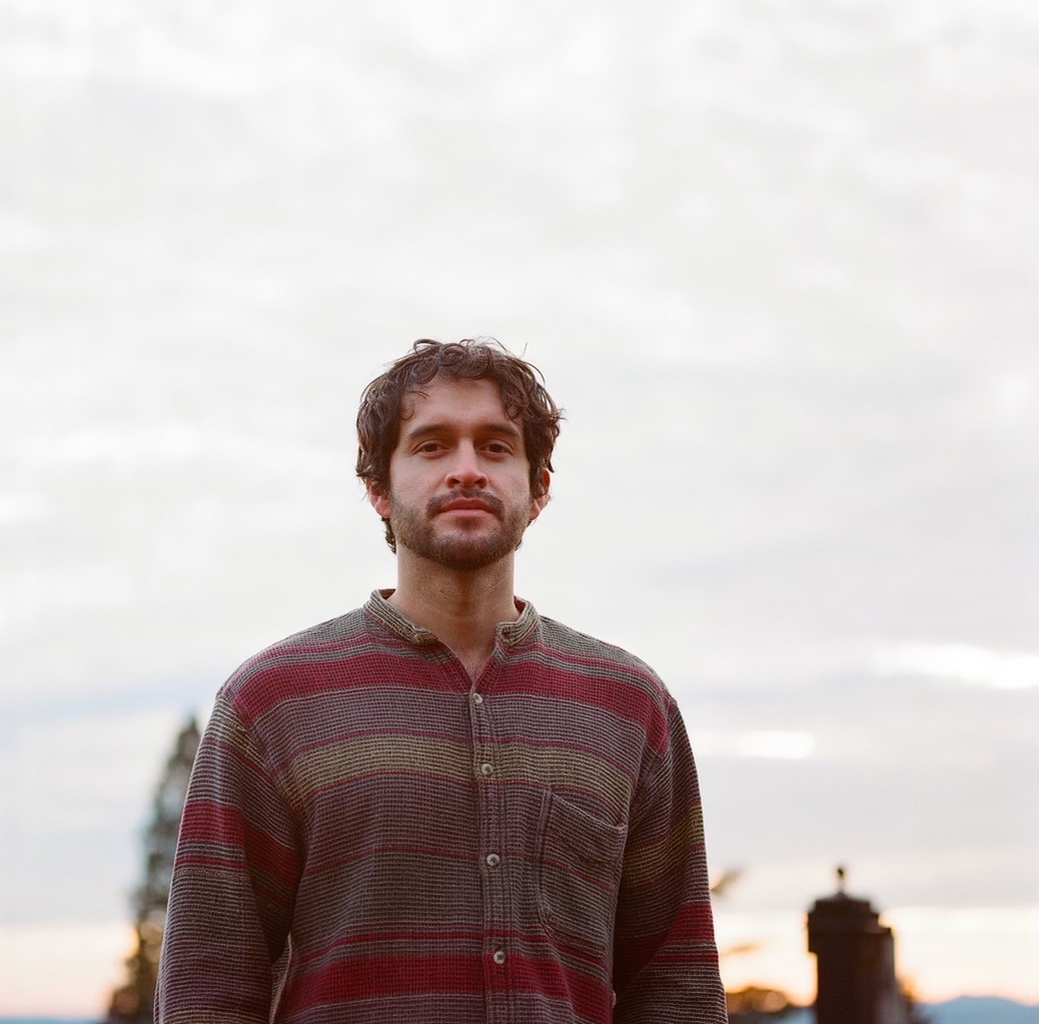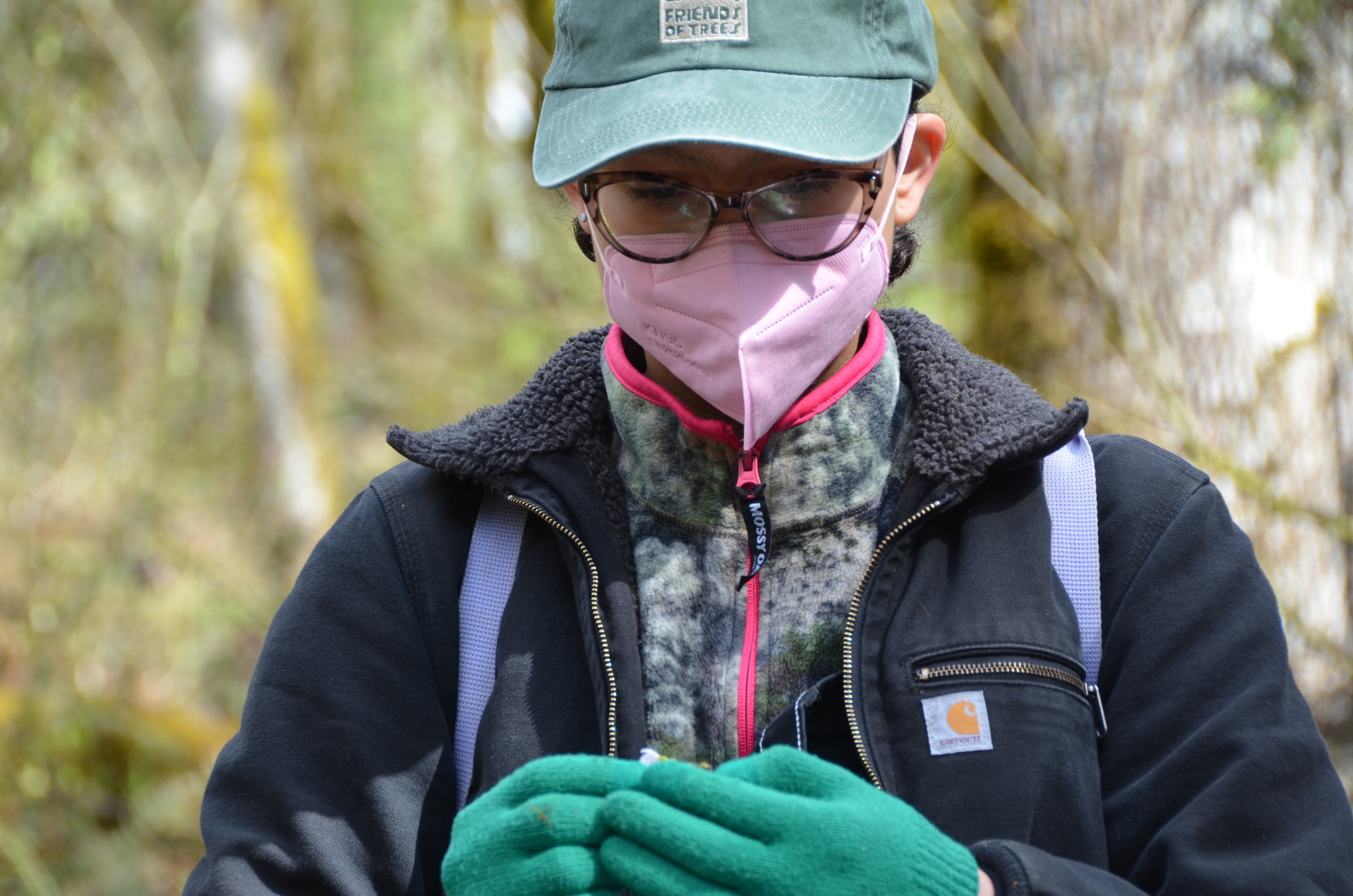
Connecting Canopies
How Trees Can Make Portland Healthier
Learn more about urban well-being and the power of trees.
Urban Well-being and Trees
To improve the equitable distribution of trees and the many benefits they bring, a group of local partners—The Blueprint Foundation, The Intertwine Alliance and The Nature Conservancy—created an initiative called Connecting Canopies. We’re working to bring together neighborhoods, government, partners and businesses to create inclusive and sustainable action plans for urban tree planting and stewardship.
A New Model for Urban Tree Stewardship
A community-led process that is built on trust will be key to achieving lasting change, so Connecting Canopies starts all projects with community voices and engagement to build an implementation plan.
Using Science to Target Tree Plantings
In the Portland metro region, neighborhoods that might benefit from increased tree canopy are overlooked and underinvested communities that have historically been neglected in urban conservation efforts. The Nature Conservancy is working to provide interactive maps and the data necessary to target tree planting, community outreach and financial investments where they are most needed. By providing new data tools, we can help to better prioritize tree planting and care, improve local policies that address inequities in tree cover and increase support for community-driven stewardship of green spaces.
Resources
Our Data Baseline Assessment
-
Urban trees provide numerous benefits to people and are essential to maintaining a healthy, livable urban environment in the face of a changing climate.
Read the report HERE
-
This document contains detailed methods and additional tables for the report: Assessment of Inequities in Urban Canopy Cover based on Race and Income Across the Portland–Vancouver Metropolitan Area of Oregon and Washington.
The report can be read HERE.

Our goal is for the Portland metro region to be on track to achieve and maintain at least a 35 percent cover of healthy tree canopy by 2030.
Blazing Trails and Increasing Diversity in Green Jobs
To support the planting and maintenance of more urban trees, The Blueprint Foundation is leading a pre-apprentice program that provides career training and opportunities for young and mid-career members of Black, Indigenous and other communities of color. Developed in partnership with Portland Fruit Tree Project, Friends of Trees and other community-based organizations, the curriculum also includes caring for fruit trees, restoring natural habitats and tending to urban gardens in underserved communities. Nearly all participants of the first cohort have received job or internship offers upon completing the program.

Recent studies show that the difference in summertime temperatures between the Portland’s forested West Hills and less affluent neighborhoods can be up to 18 degrees.
Providing an Example for Cities Around the World
Having more urban trees could benefit countless other cities. Globally, extreme heat events contribute to more deaths than all other natural disasters combined. What we create in Portland will serve as a model for other cities and will be shared with our TNC colleagues around the world.




